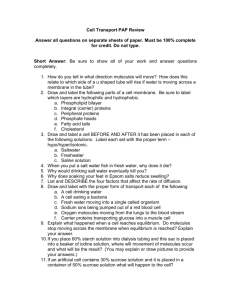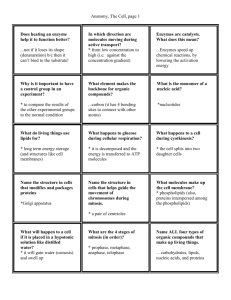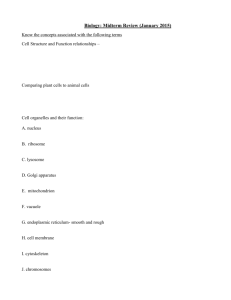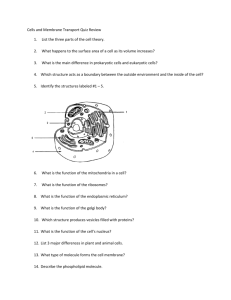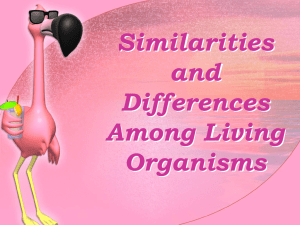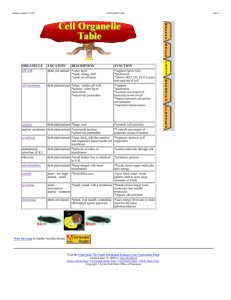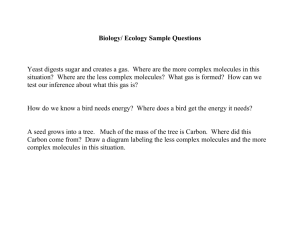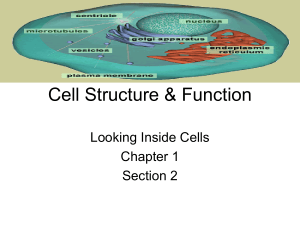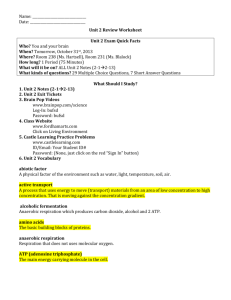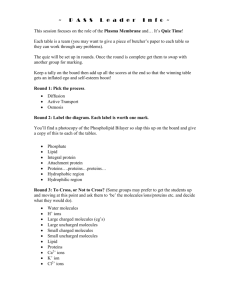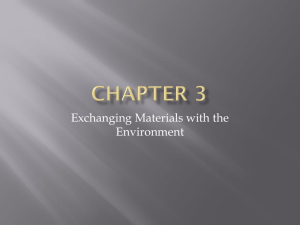Topic 1 Vocabulary: Cell Biology & Life Processes
advertisement
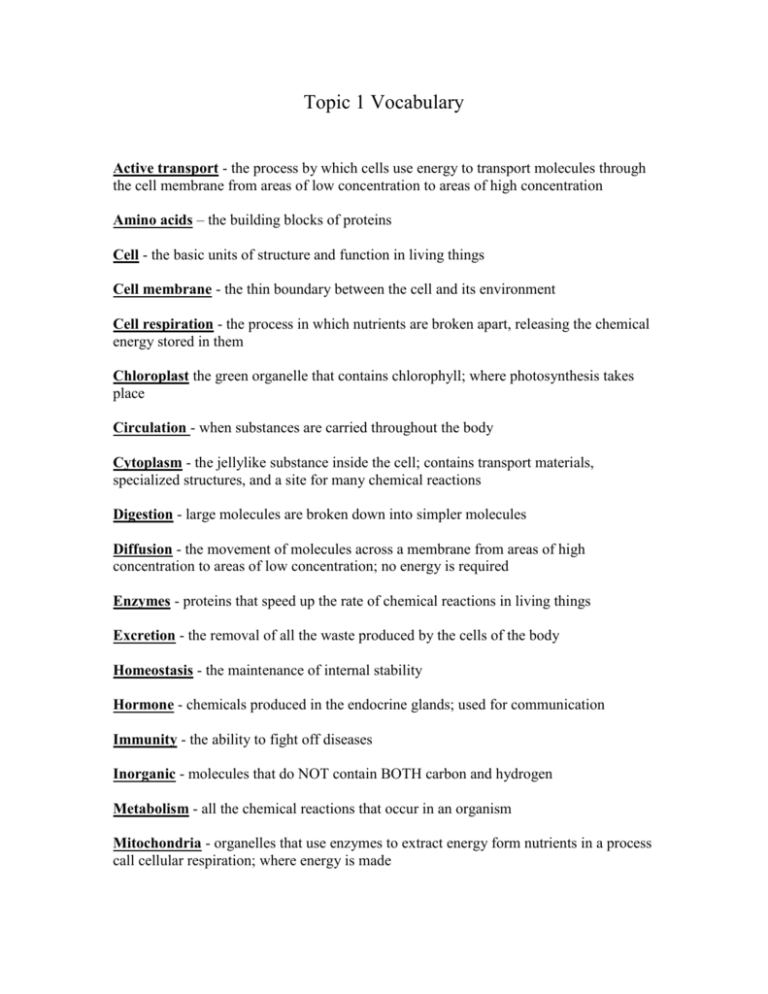
Topic 1 Vocabulary Active transport - the process by which cells use energy to transport molecules through the cell membrane from areas of low concentration to areas of high concentration Amino acids – the building blocks of proteins Cell - the basic units of structure and function in living things Cell membrane - the thin boundary between the cell and its environment Cell respiration - the process in which nutrients are broken apart, releasing the chemical energy stored in them Chloroplast the green organelle that contains chlorophyll; where photosynthesis takes place Circulation - when substances are carried throughout the body Cytoplasm - the jellylike substance inside the cell; contains transport materials, specialized structures, and a site for many chemical reactions Digestion - large molecules are broken down into simpler molecules Diffusion - the movement of molecules across a membrane from areas of high concentration to areas of low concentration; no energy is required Enzymes - proteins that speed up the rate of chemical reactions in living things Excretion - the removal of all the waste produced by the cells of the body Homeostasis - the maintenance of internal stability Hormone - chemicals produced in the endocrine glands; used for communication Immunity - the ability to fight off diseases Inorganic - molecules that do NOT contain BOTH carbon and hydrogen Metabolism - all the chemical reactions that occur in an organism Mitochondria - organelles that use enzymes to extract energy form nutrients in a process call cellular respiration; where energy is made Nucleus - controls the cells activities, where DNA is located in the cell Organ - different tissues combined to perform one of the life processes Organ system - several organs may work together to perform one of the life processes Organelle - specialized structures found in cells that have specific life maintenance functions Organic - Molecules that contain BOTH carbon and hydrogen Receptor molecule - proteins found in the cell membrane that receive chemical messages Respiration - process that uses oxygen to break down food molecules (sugar) to release energy Reproduction - the process in which organisms produce new organisms of the same type Ribosome - organelle where proteins are made Simple sugars - the results of digested starches, small sugar molecules such as glucose Synthesis - combining simple substances into complex substances, to make Tissue - group of cells working together to perform a function Vacuole - storage sacs found inside the cell

